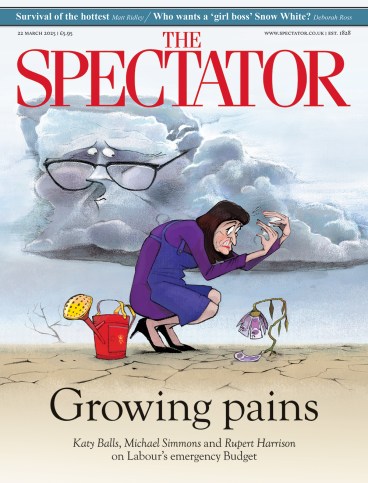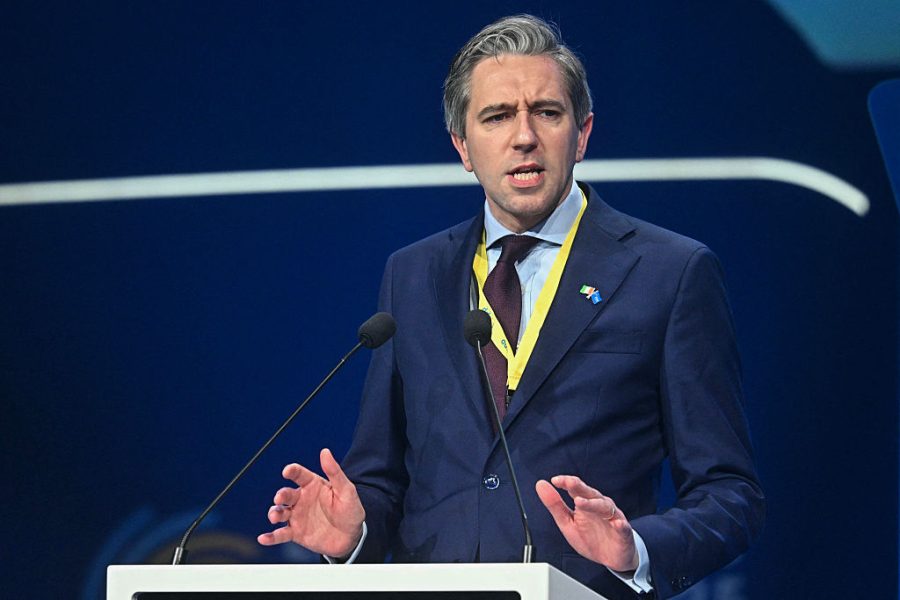
‘You can’t make an omelette without breaking eggs’ is a maxim attributed to leaders on both sides of the French Revolution. ‘Move fast and break things’ is today’s equivalent, emanating from Silicon Valley and amply demonstrated by Donald Trump and Elon Musk in their approach to government and geopolitics. ‘You can’t make omelettes at all if you can’t afford eggs’ might be the next variant: inflation and scarcity afflicting America’s favourite breakfast have become a major political issue.
In brief, a dozen US eggs used to cost $2 or less but by January this year the supermarket price was $5 and rising – in some places $9 was reported, rationing had to be introduced and Mexican suppliers were spotted smuggling truckloads across the border. The primary cause is an avian flu epidemic leading to the mass culling of flocks. Trump blamed Joe Biden for mishandling the crisis (though culling is a standard response) and claimed he would fix the problem on ‘day one’ of his new presidency. Having failed to do so he tried to downplay it by re-posting a Truth Social article headed ‘Shut up about egg prices’ before returning to the subject (‘We’re working hard to get it down’) in his recent speech to Congress.
In his haste to heap chicken shit (as it were) on Biden and federal bureaucrats, Trump seems to have overlooked another factor: corporate profiteering. Eggs still cost only 70-90 cents a dozen to produce; America’s largest supplier, Cal-Maine Foods of Jackson, Mississippi, tripled its profits between 2021 and 2024. And prices have stayed high partly because the US egg industry has not rebuilt capacity after the culls as fast as might have been expected – because two other companies have strangled the supply of egg-laying hens.
And guess what, both live in the bloc Trump believes was formed ‘to screw the United States’: the European Union. I’m grateful to lawyer Basel Musharbash, in a report titled ‘Hatching a Conspiracy’, for the information that family-owned Erich Wesjohann Group of Visbek, Germany, and private-equity-held Hendrix Genetics at Boxmeer in the Netherlands between them command duopoly power over US and European layer-hen breeding. Both have shown steep growth in US revenues, while allegedly stoking grocery bills by keeping chick supply tight.
So there’s your next target, Mr President. Meanwhile, egg prices dipped this week as demand faltered but are expected to rise again towards Easter – and this is just the sort of mundane issue that could one day burst the preposterous Trump balloon. Inflation-stung US consumers and offended citizens everywhere should hang the expense and take every chance to hurl eggs at him.
Faint hope
Reporting on next week’s Spring Statement by Chancellor Rachel Reeves has focused so far on cabinet splits over potential public spending cuts and welfare reforms. But as the economy teeters on the cusp of recession, with manufacturing output in decline and the new uncertainty of a tariff war, the business community is praying only for one policy change: a modification or reversal of the growth-killing Reeves blunder which is the increase in employers’ national insurance contributions to 15 per cent on salaries above £5,000, due to take effect next month. Faint hope perhaps, but the louder employers shout about it, the more she’ll have to listen.
Not so super Mark Carney
My man in a pink coat who used to serve the governor’s soup at the Bank of England rings from his caravan on Canvey Island to say he doesn’t reckon former governor Mark Carney – suddenly elevated as Prime Minister of Canada – has a hope of outplaying Donald Trump in the negotiating chamber and even less so in the media spotlight. Mind you, my man never forgave Carney for abolishing the governor’s annual cricket match and allowing the super-rich All England tennis club at Wimbledon to grab a lease on the Bank’s historic Roehampton sports ground – a deal that offers a handy metaphor for what Trump would like to do to Canada.
The truth about the supposed ‘rockstar central banker’ Carney (to quote George Osborne, who appointed him governor) is that he was a dull speech-maker, uneasy with journalists and ill-equipped for the flak that came his way from Westminster, particularly from Brexiteers. To give him his due, he’s a big dog among global monetary chiefs and on the climate-change conference circuit. But in London he was a fish-out-of-water technocrat who made little public impact and was swiftly forgotten after he departed in 2020. For Canada’s sake, let’s hope his clash with Trump doesn’t go the same way.
Uninvited cousin
‘A totally embarrassing week’ was the Wall Street Journal’s headline summary of the tribunal in which former Barclays chief executive Jes Staley sought to overturn the Financial Conduct Authority’s decision to ban him from senior jobs in financial services and fine him £1.8 million, having ruled that he misled the regulator about the depth of his friendship with the sex offender Jeffrey Epstein. In cross-questioning, Staley admitted salacious details of his own extra-marital activities; perhaps even more embarrassingly, who should show up in the courtroom at the end of the four-day hearing, like the uninvited cousin at a wedding, but the former hedge fund manager Crispin Odey.
And hey presto, on Monday Odey too was banned from the City by the FCA and fined £1.8 million – in his case for ‘lack of integrity’ and ‘reckless disregard for governance’ in deliberately frustrating disciplinary inquiries within his own firm, Odey Asset Management, into multiple allegations against him of sexual harassment. A final ruling in Staley’s case is expected within three months, while Odey still has the right to challenge the FCA decision. We can only wonder whether the purpose of his popping in was to poach the best lawyer or to offer Staley a consoling steak dinner.









Comments